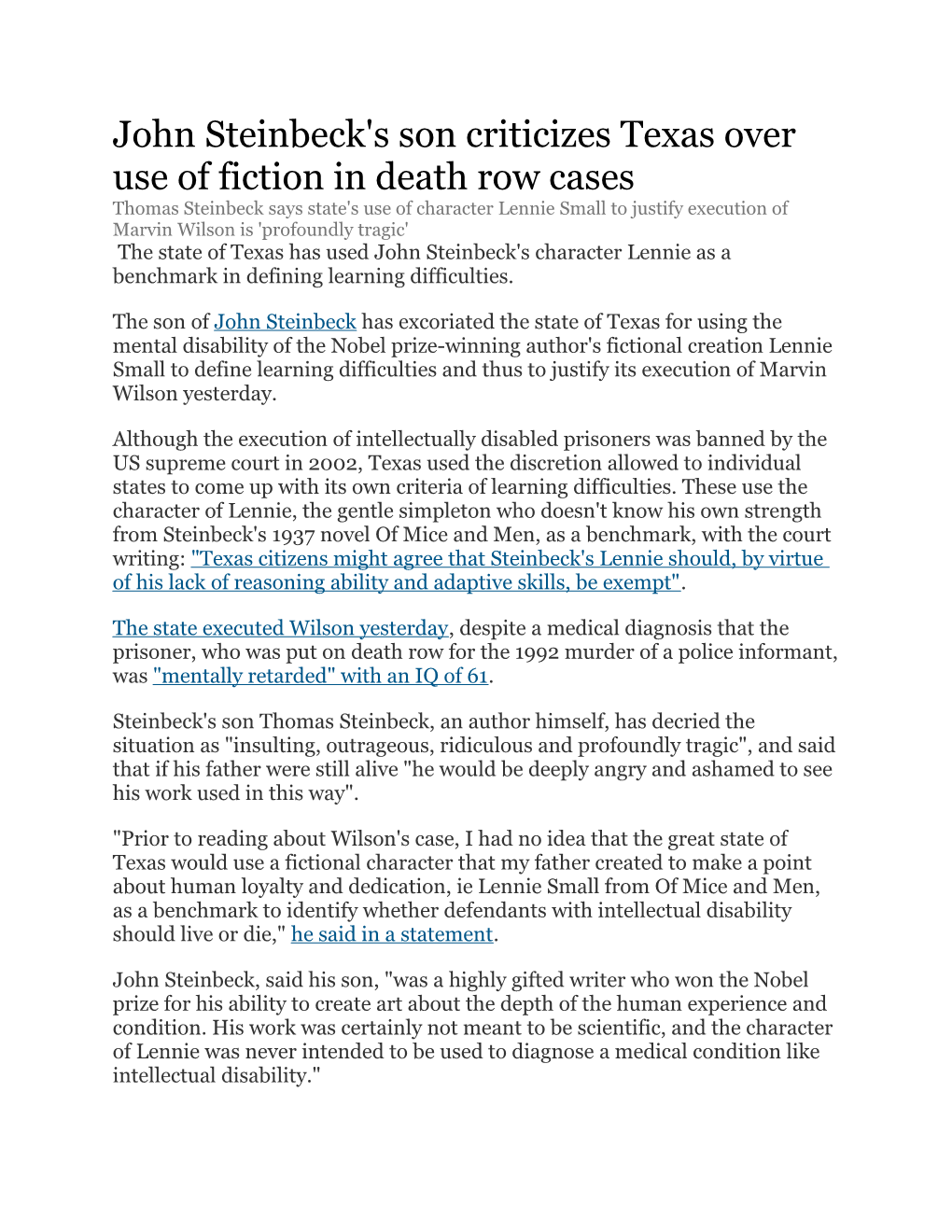John Steinbeck's son criticizes Texas over use of fiction in death row cases
Thomas Steinbeck says state's use of character Lennie Small to justify execution of Marvin Wilson is 'profoundly tragic'
The state of Texas has used John Steinbeck's character Lennie as a benchmark in defining learning difficulties.
The son ofJohn Steinbeckhas excoriated the state of Texas for using the mental disability of the Nobel prize-winning author's fictional creation Lennie Small to define learning difficulties and thus to justify its execution of Marvin Wilson yesterday.
Although the execution of intellectually disabled prisoners was banned by the US supreme court in 2002, Texas used the discretion allowed to individual states to come up with its own criteria of learning difficulties. These use the character of Lennie, the gentle simpleton who doesn't know his own strength from Steinbeck's 1937 novel Of Mice and Men, as a benchmark, with the court writing:"Texas citizens might agree that Steinbeck's Lennie should, by virtue of his lack of reasoning ability and adaptive skills, be exempt".
The state executed Wilson yesterday, despite a medical diagnosis that the prisoner, who was put on death row for the 1992 murder of a police informant, was"mentally retarded" with an IQ of 61.
Steinbeck's son Thomas Steinbeck, an author himself, has decried the situation as "insulting, outrageous, ridiculous and profoundly tragic", and said that if his father were still alive "he would be deeply angry and ashamed to see his work used in this way".
"Prior to reading about Wilson's case, I had no idea that the great state of Texas would use a fictional character that my father created to make a point about human loyalty and dedication, ie Lennie Small from Of Mice and Men, as a benchmark to identify whether defendants with intellectual disability should live or die,"he said in a statement.
John Steinbeck, said his son, "was a highly gifted writer who won the Nobel prize for his ability to create art about the depth of the human experience and condition. His work was certainly not meant to be scientific, and the character of Lennie was never intended to be used to diagnose a medical condition like intellectual disability."
Alison Flood
Wednesday 8 August 201208.58EDTLast modified on Friday 3 October 201408.06EDT
